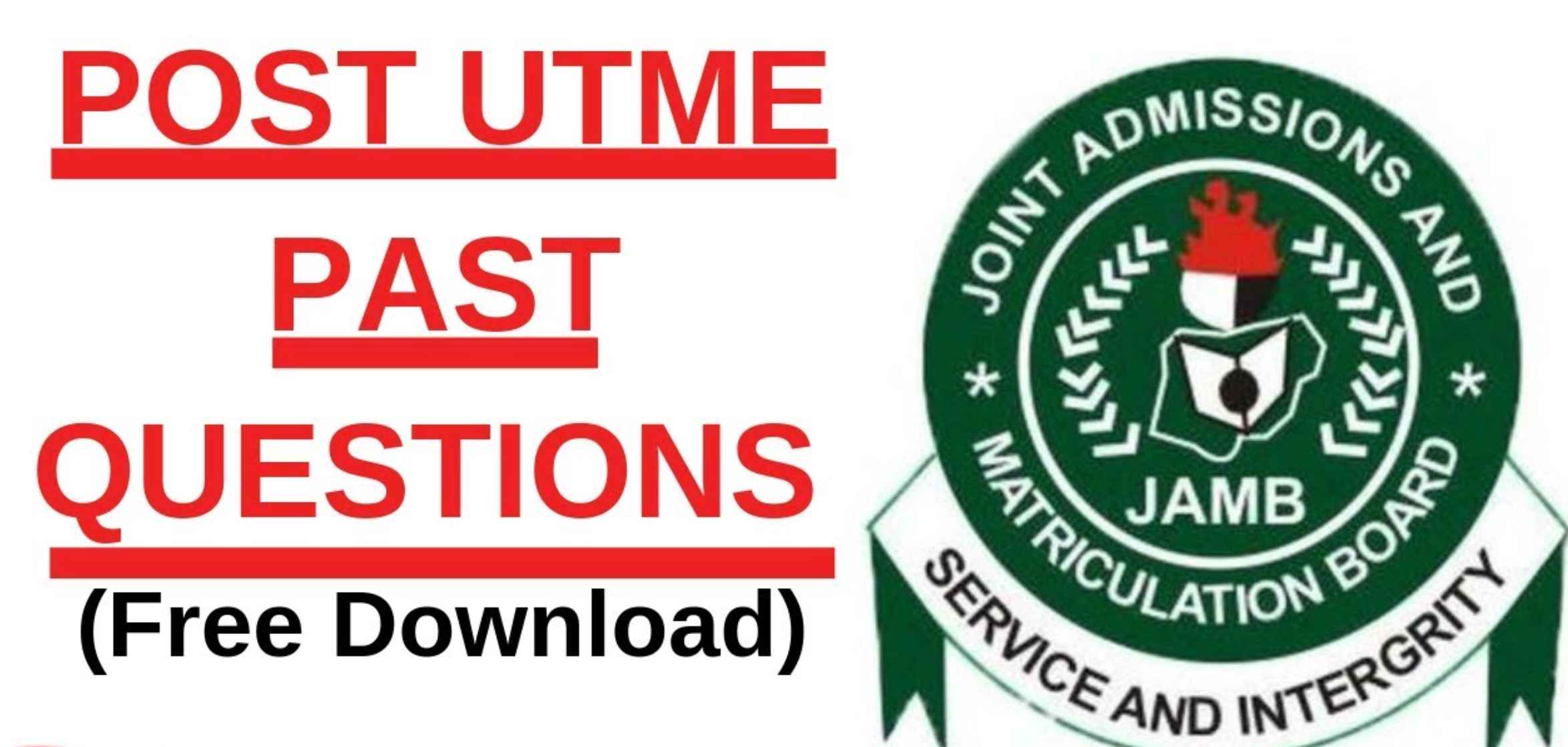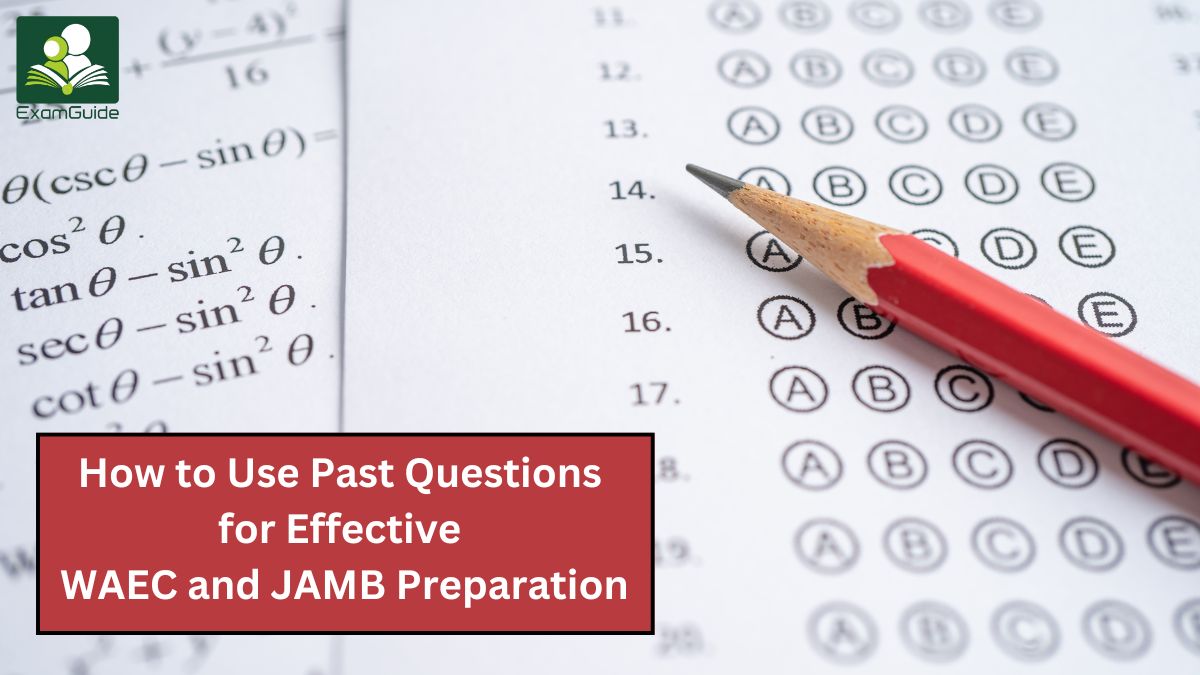
Post UTME Exam Questions Format and Key Topics to Focus in 2024
The Post-UTME (Post-Unified Tertiary Matriculation Examination) is a critical step for students aiming to gain admission into Nigerian universities. This examination, conducted by individual institutions, assesses candidates' academic capabilities beyond the Joint Admissions and Matriculation Board (JAMB) exam. To excel, understanding the structure, types of questions, and preparation strategies for Post-UTME is essential.

Subjects Covered in Post UTME Exams
Post UTME Exam Questions Format
Key Topics to Focus On When Preparing for Post UTME Exam
Preparation Strategies for Post UTME
Exam Format
The format of the Post-UTME exam varies by institution, but generally, it includes multiple-choice questions (MCQs) covering subjects relevant to the candidate's chosen field of study. Some universities may also include essay-type questions.
Subjects Covered in Post UTME Exams
Typically, the subjects tested in the Post-UTME exam align with those taken during the UTME. Common subjects include:
- English Language
- Mathematics
- Physics
- Chemistry
- Biology
- Economics
- Government
- Literature in English
Question Distribution
The number of questions and the marks assigned to each subject can vary. Generally, more emphasis is placed on core subjects relevant to the candidate’s desired course of study.
Post UTME Exam Questions Format
Multiple-Choice Questions (MCQs)
MCQs are the most common type of question in the Post-UTME. They require candidates to select the correct answer from a list of options. These questions test a broad range of knowledge and quick thinking.
Essay-Type Questions
Some universities include essay-type questions to assess candidates' analytical and writing skills. These questions require detailed responses and a deep understanding of the subject matter.
True or False Questions
In some cases, true or false questions may be included. These questions test the candidate’s ability to quickly ascertain factual correctness.
Quantitative Reasoning
Quantitative reasoning questions are often included to test candidates' numerical and logical reasoning skills. These questions require problem-solving abilities and a good grasp of mathematical concepts.
Key Topics to Focus On When Preparing for Post UTME Exam
English Language
1. Comprehension
Candidates should practice reading passages and answering questions that test their understanding and interpretation skills.
2. Grammar and Vocabulary
Knowledge of grammatical rules and a strong vocabulary are crucial. Focus on tenses, sentence structure, and word usage.
DEAR ASPIRING CANDIDATES, you can step up your PUTME preparation with ExamGuide POST UTME app, a trusted tool for PUTME exam success. Join thousands of successful students and turn your POST UTME UTME dreams score into reality – download ExamGuide POST UTME Learning App now and start your journey to academic excellence
Mathematics
1. Algebra and Geometry
Key topics include solving equations, inequalities, and understanding geometric properties.
2. Statistics and Probability
These topics involve data interpretation and probability calculations, which are often tested.
For Science Students
Physics
Focus on mechanics, electricity, and magnetism, as these are commonly tested areas.
Chemistry
Key topics include organic and inorganic chemistry, chemical reactions, and stoichiometry.
Biology
Emphasis is on cell biology, genetics, and ecology. Understanding biological processes and systems is essential.
Social Sciences
Economics
Candidates should focus on microeconomics and macroeconomics, including demand and supply, market structures, and economic policies.
Government
Study political systems, the Nigerian constitution, and public administration.
Literature in English
Focus on literary terms, analysis of prose and poetry, and understanding literary devices.
Preparation Strategies for Post UTME
Understand the Syllabus
Each university may have a slightly different syllabus. Ensure you understand the specific requirements of the institution you are applying to.
Practice Past Questions
Practicing past Post-UTME questions helps familiarize you with the exam format and types of questions asked. It also helps in identifying important topics.
Time Management
During the exam, managing your time effectively is crucial. Practice answering questions within a set time limit to improve your speed and accuracy.
Study Regularly
Regular study sessions and a consistent study schedule are key to retaining information and improving understanding. Break down your study material into manageable sections.
Join Study Groups
Joining study groups can provide additional insights and help clarify difficult topics. Group discussions can enhance understanding and retention.
Seek Professional Help
Consider enrolling in preparatory classes or seeking help from tutors who specialize in Post-UTME preparation. Professional guidance can make a significant difference.
Tips for the Exam Day
Stay Calm and Focused
Maintain a calm demeanor during the exam. Panic can lead to mistakes and affect your performance.
Read Instructions Carefully
Ensure you read all instructions carefully before starting the exam. Misinterpreting instructions can lead to unnecessary errors.
Answer Easy Questions First
Answering easy questions first can help build confidence and save time for more challenging questions later.
Double-Check Your Answers
If time permits, review your answers to ensure accuracy. Correct any mistakes you might have made.
Conclusion
Excelling in the Post-UTME requires thorough preparation, a deep understanding of the syllabus, and effective exam strategies. By focusing on key subjects, practicing past questions, and managing your time effectively, you can increase your chances of success. Remember, consistent effort and a positive attitude are essential.
No comment found
Related Posts

Top 20 Motivational Quotes for Students to Work Hard

How to Use Past Questions for Effective WAEC and JAMB Preparation

Language barriers in Nigerian Education and how to Overcome them

How to Excel in Mathematics: Tips for Nigerian Students

How to Summarize Notes Effectively for Faster Revision


